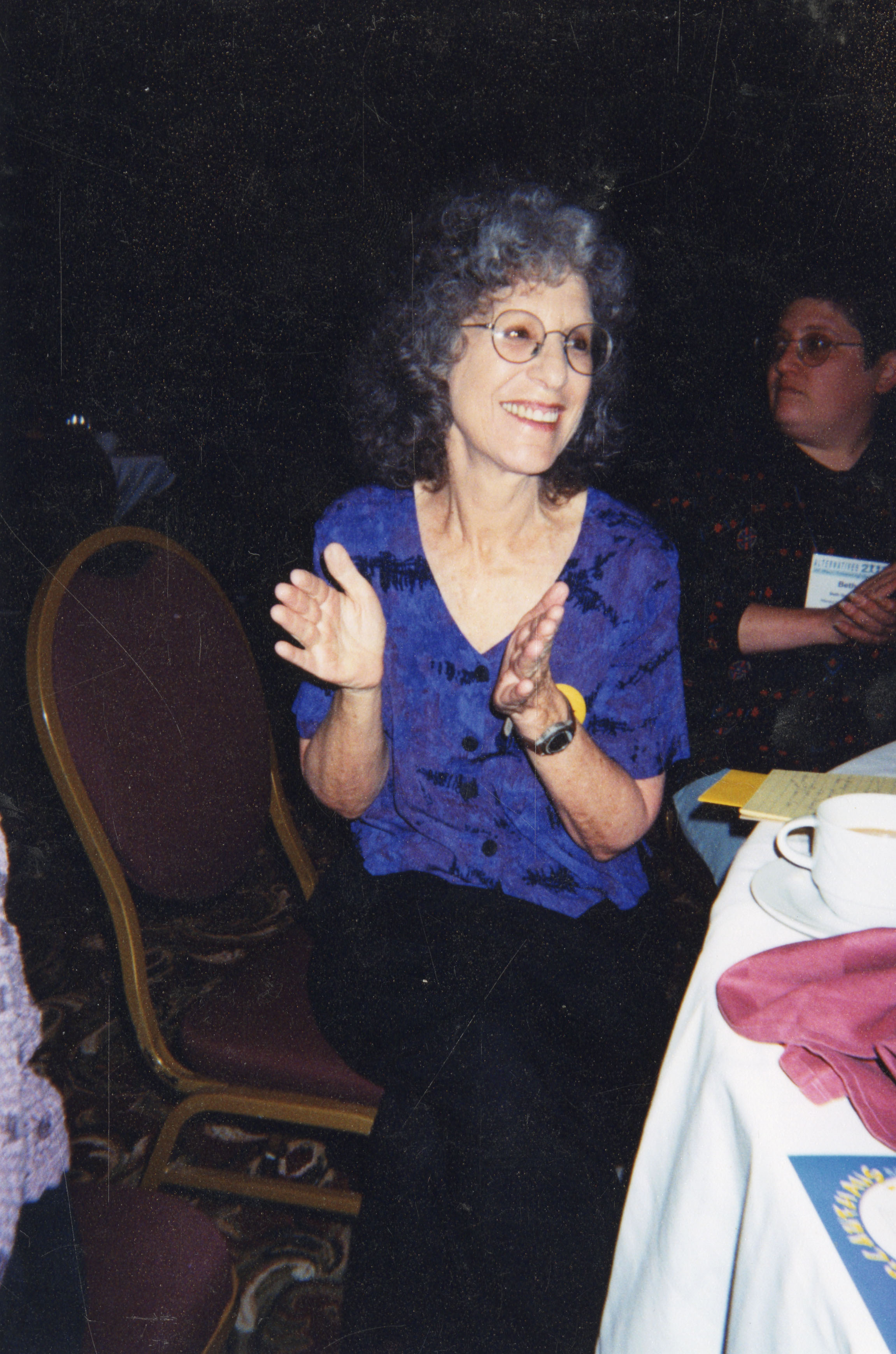Background on Sally Zinman

Sally Zinman, ca. 2005
Sally Zinman was born in 1937 in Pennsylvania, to Philip Zinman and Zola N. Zinman. Zinman would go on to earn her BA, with Honors in English, as well as her MA in English from the University of Pennsylvania; she was a Ph.D Candidate in English at New York University from 1966-1969.
At the age of 34, Zinman woke up one morning disassociated from her past, believing that she was not Sally Zinman, but a woman named Svetlana. Her family put her in the care of psychotherapist John Nathaniel Rosen from 1971 to 1973, during which time Zinman suffered physical abuse at the hands of Rosen and his aides, including beatings, restraint, and seclusion. Zinman tried to escape Rosen’s influence several times, but was only able to leave his care by lying and pretending that she believed that she was Sally Zinman. After leaving and beginning her road to recovery on an organic vegetable farm she bought in Florida, Zinman hired private investigator Virginia Snyder to gather material about her past, which helped prove to Zinman that she was, in fact, Sally Zinman. Working with Snyder, Zinman sought to expose Rosen and his abuse, and get his license to practice revoked. An exposé against Rosen, based on material that Snyder gathered for Zinman’s case, was run in The Miami Herald, and although there were investigations into deaths of patients under Rosen’s care, it was not until 1982 that Rosen surrendered his medical license to avoid a public hearing.
After this experience, and after attending the International Conference of Human Rights Against Psychiatric Oppression in 1977, Zinman became more involved in fighting for the civil rights of mental patients, even running a couple of short ads in the personals section of The Miami Herald and Palm Beach Post-Times; these ads read: “LOOKING for persons to start an advocacy group for mental patients rights” and “Want to join an advocacy group for mental patients rights? Call collect, Sally.” Eventually, this led to the founding of the Mental Patients’ Rights Association (later called Alternatives to Psychiatry Association) in 1977, which included a drop-in center and residency. Zinman also served as a co-editor of Madness Network News during this time. While living in Florida, Zinman decided to adopt a child, Rachel, and raise her as a single mother.
Spurred by Rachel’s adoption, Zinman made the move from Florida to Berkeley, California in 1983. Shortly after the move, Zinman was invited to the first meeting of the Consumer Steering Committee in 1983, the group that would later become the California Network of Mental Health Clients (CNMHC). Zinman was a founding member and first staff of this organization, helping to found and facilitate the Self-Help Committee of CNMHC, and she served as Executive Director from 1997 to 2007. Through her work with CNMHC, Zinman and other ex-patients were integral to contributing to the psychiatric survivors movement and especially the self-help movement. The CNMHC Public Education and Policy Project was instrumental in battling the stigma against mental illness and involuntary treatment. As part of CNMHC, Zinman was also involved in the Mental Health Services Oversight and Accountability Commission, which oversaw implementation of the Mental Health Services Act in California.
Zinman was also the founder and coordinator of the Berkeley Drop-In Center (BDIC), formally known as the Coalition for Alternatives in Mental Health. The BDIC provided job training, socialization, food service, housing, and other crucial support services run by and for persons with mental illness. Zinman’s work with the BDIC spanned 1985 to 1997.
Other organizations with which Zinman was involved include the Alameda County Network of Mental Health Clients, as a consultant with the Office of Consumer Relations of the Alameda County Behavioral Health Care Services, the Bazelon Center for Mental Health Law, and more. She was also on the Steering Committee that was formed to discuss the founding of the first national organization (which would become the National Mental Health Consumers’ Association); Zinman, Judi Chamberlin, Rae Unzicker, and others would eventually resign from the Steering Committee due to their different views regarding involuntary treatment. As a result of splintering off, the National Alliance of Mental Patients (later the National Association of Psychiatric Survivors) was established as an alternative national organization. Throughout this time, Zinman was a participant in the National Teleconference Project.
Zinman would later become the Executive Director of the California Association of Mental Health Peer Run Organizations (CAMHPRO), an organization with which she was involved until her death. In the later part of her life, Zinman would also work with the Pool of Consumer Champions (POCC; now known as Peers Organizing Community Change) and Peers Envisioning and Engaging in Recovery Services (PEERS).
Her leadership in the psychiatric survivors movement meant that Zinman was frequently invited to speak at conferences, and she often participated in interviews and panels. Much of Zinman’s speech and presentation material related to these events highlight the importance of involving the ex-patients in the creation of mental health programs and legislation, and the history of the consumer/survivor movement from the 1970s to present day.
Throughout her life, Zinman worked tirelessly as an advocate for the rights of consumers/survivors/ex-patients. In recognition of her devotion to the psychiatric survivors movement, Zinman received several awards, certificates, and commendations. She was a crucial figure in establishing and providing guidance for the development of self-help groups throughout the movement.
Sally Zinman passed away on August 25, 2022 after battling cancer, infections, and COVID.

